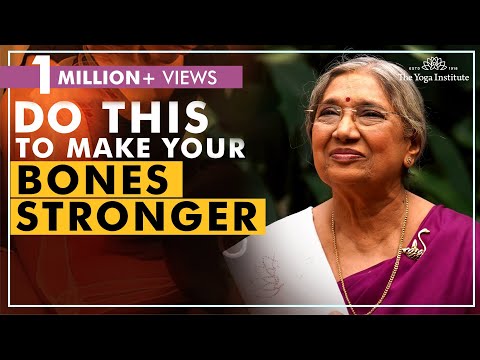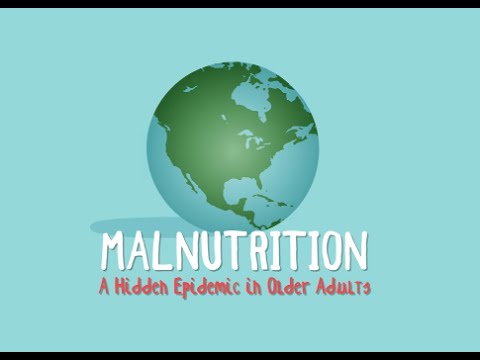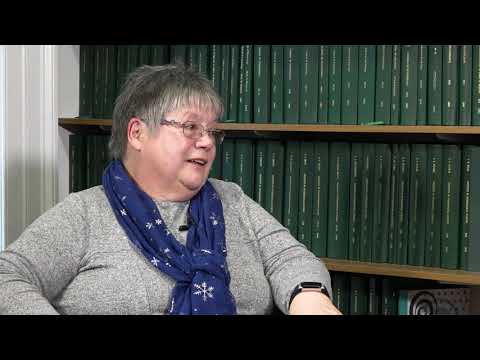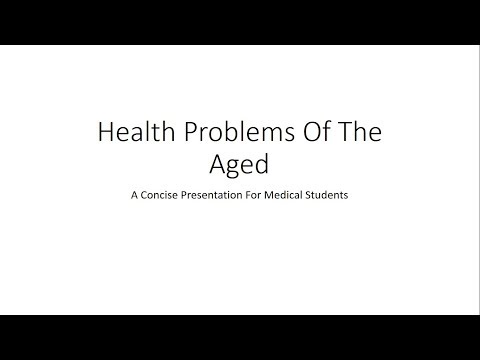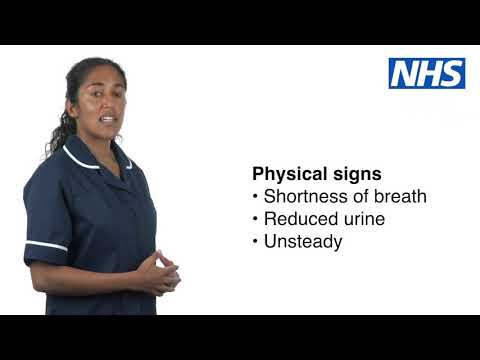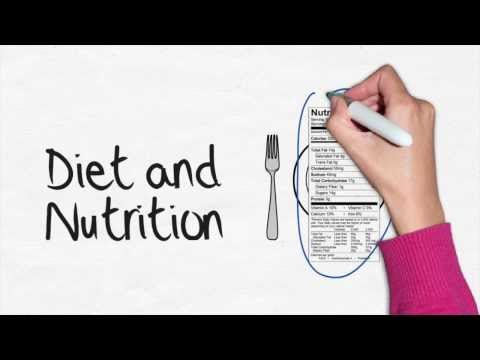Ensuring Elderly Bone Health Through Proper Diet and Exercise
Contents
- Introduction
- The Importance of Bone Health
- The Relationship Between Diet and Bone Health
- The Relationship Between Exercise and Bone Health
- The Benefits of Proper Bone Health
- The Risks of Poor Bone Health
- The Importance of a Healthy Diet
- The Importance of Exercise
- The Dangers of a Sedentary Lifestyle
- Conclusion
As we age, our bones can become more brittle and susceptible to fractures. To help keep our elderly loved ones healthy and strong, it’s important to make sure they’re getting the right nutrients and exercise. Here’s what you need to know about ensuring elderly bone health.
Checkout this video:
Introduction
As we age, our bones can become more fragile and porous, making them more susceptible to fractures. To help prevent this, it is important to maintain healthy bones through proper diet and exercise. This is especially important for the elderly, as they are at a higher risk for bone density loss and osteoporosis.
There are many things that you can do to keep your bones healthy as you age. Getting enough calcium and vitamin D through diet and supplements is essential for keeping bones strong. Weight-bearing exercise such as walking, running, and lifting weights also helps to keep bones dense. And avoiding smoking and excessive alcohol consumption can also help reduce the risk of bone density loss.
By following these tips, you can help keep your bones healthy and strong as you age.
The Importance of Bone Health
As we age, our bones can become thinner, more fragile and more likely to break. This is especially true for women, who are at greater risk for osteoporosis (a condition that leads to weak and brittle bones). But there are steps we can all take to keep our bones healthy and strong as we age.
One of the most important things we can do for our bone health is to engage in regular Physical Activity Weight-bearing and resistance exercises help to build bone mass and strength, which can help prevent fractures later in life. Another crucial factor in maintaining bone health is getting enough calcium and vitamin D. These nutrients are essential for bone growth and maintenance, so it’s important to get them through diet or supplements if needed.
With proper care, our bones can stay strong and healthy throughout our lives. by taking steps to improve our diet and exercise habits, we can reduce our risk of osteoporosis and other degenerative diseases.
The Relationship Between Diet and Bone Health
There is a complex relationship between diet and bone health.Effects of various nutrients on bone health have been extensively studied in both animal models and observational epidemiological studies in humans, but the results have been inconclusive. Some nutrients, such as calcium, are thought to be beneficial for bone health, while others, such as salt, are thought to be detrimental. In addition, the dose of a nutrient may affect its effects on bone health, and different populations may have different requirements for optimal bone health.
It is clear that diet plays a role in bone health, but the exact relationship between diet and bone health is still not fully understood. However, there are some general principles that can be followed to promote healthy bones. A diet that is high in calcium and vitamin D is thought to be beneficial for bone health. In addition, weight-bearing exercise is thought to improve bone density and reduce the risk of fractures.
The Relationship Between Exercise and Bone Health
As we age, it becomes increasingly important to maintain our bone health. This can be done through proper diet and exercise.
Exercise has a direct impact on bone health. When we put stress on our bones through exercise, they respond by becoming stronger. This is because exercise causes our bones to produce more cells, which in turn makes them stronger and less likely to break.
Diet also plays a role in bone health. Our bodies need certain nutrients, such as calcium and vitamin D, to build strong bones. If we do not get enough of these nutrients through our diet, our bones can become weak and more likely to break.
By ensuring that we get enough exercise and eat a healthy diet, we can help keep our bones strong and healthy as we age.
The Benefits of Proper Bone Health
Elderly bone health is often a hot topic among Medical professionals and the general public. This is because as we age, our bones inevitably weaken and become more susceptible to injury and disease. However, there are things that we can do to help ensure our bone health as we age. Proper diet and exercise are two of the most important factors in keeping our bones healthy as we age.
Diet is important for proper bone health because it helps to ensure that our bodies are getting the nutrients they need to maintain strong bones. Calcium, vitamin D, and protein are all essential nutrients for healthy bones. Calcium is the most abundant mineral in our bodies and is essential for proper bone growth and development. Vitamin D helps our bodies absorb calcium, while protein provides the building blocks for new bone growth.
Exercise is also important for proper bone health. Weight-bearing exercise such as walking, running, and lifting weights helps to stimulate new bone growth and strengthens existing bones. Exercise also helps improve balance and coordination, which can help prevent falls – a leading cause of fractures in older adults.
By incorporating proper diet and exercise into our daily lives, we can help improve our chances of maintaining good bone health as we age.
The Risks of Poor Bone Health
As we age, our bones naturally become weaker and more fragile. This process is called osteoporosis, and it’s a major health concern for the elderly. In fact, poor bone health is a key factor in numerous age-related injuries, particularly falls.
There are several things that can contribute to poor bone health as we age. One of the most common is a lack of vitamin D and calcium in the diet. Vitamin D helps the body absorb calcium, and both are essential for strong bones. Other risk factors include a sedentary lifestyle, smoking, excessive alcohol consumption, and certain medications.
The good news is that there are things we can do to reduce our risk of developing osteoporosis or improve our bone health if we already have it. Eating a healthy diet rich in vitamins and minerals is critical, as is getting enough exercise. Weight-bearing exercises like walking, jogging, stair climbing, and lifting weights are especially important because they help maintain bone density.
If you’re concerned about your bone health, talk to your doctor about steps you can take to reduce your risk or improve your condition. Proper diet and exercise are essential for maintaining strong bones as we age!
The Importance of a Healthy Diet
A healthy diet is important for people of all ages, but it is especially important for the elderly. According to the National Institute on Aging, “Osteoporosis, or porous bone, is a disease characterized by low bone mass and structural deterioration of bone tissue, leading to fragile bones and an increased risk for fractures.” The bones of elderly people are more prone to osteoporosis due to a decrease in estrogen levels, which leads to a loss in bone density. A healthy diet that includes plenty of calcium and vitamin D can help prevent or slow the onset of osteoporosis.
The Importance of Exercise
As we age, it’s important to pay attention to our bone health. Unfortunately, many of us don’t give our bones the attention they deserve until we experience a fracture or other bone health issue. This is especially true for elderly individuals, who are more susceptible to bone loss and fractures.
There are two main things you can do to keep your bones healthy as you age: get enough calcium and vitamin D in your diet, and exercise regularly. Getting enough calcium is important because it helps build strong bones and prevent osteoporosis. Vitamin D helps your body absorb calcium and also has been shown to reduce the risk of falls (and fractures) in older adults.
While getting enough calcium and vitamin D is important, it’s not the only thing you need to do for healthy bones. Exercise is also key, especially weight-bearing exercise like walking, jogging, or running. Strength training is also beneficial for bone health. Regular exercise can help improve balance and coordination, which can reduce your risk of falling (and fracturing a bone).
If you’re not used to exercising, start slow and gradually increase the intensity and duration of your workouts. And be sure to talk to your doctor before starting any new exercise routine, especially if you have any existing health conditions With a little effort, you can keep your bones healthy and reduce your risk of fractures as you age.
The Dangers of a Sedentary Lifestyle
A sedentary lifestyle is a major risk factor for developing osteoporosis and other bone-related diseases later in life. Older adults who do not get enough exercise are more likely to experience bone loss, muscle weakness, and balance problems. Falls become more common as a result, and the risk of fractures goes up.
There are several things that can be done to help prevent these problems from developing, or to slow their progression. Regular exercise is important for everyone, but especially for those who are at risk for osteoporosis and other bone diseases. Weight-bearing and resistance exercises help to maintain muscle strength and prevent bone loss. Getting enough calcium and vitamin D are also essential for keeping bones healthy.
Conclusion
There are many things that can be done to help ensure elderly bone health. Proper diet and exercise are crucial, and there are a variety of supplements that can also be helpful. Elderly individuals should talk to their doctor about what steps they can take to maintain strong bones and reduce their risk of fractures.

